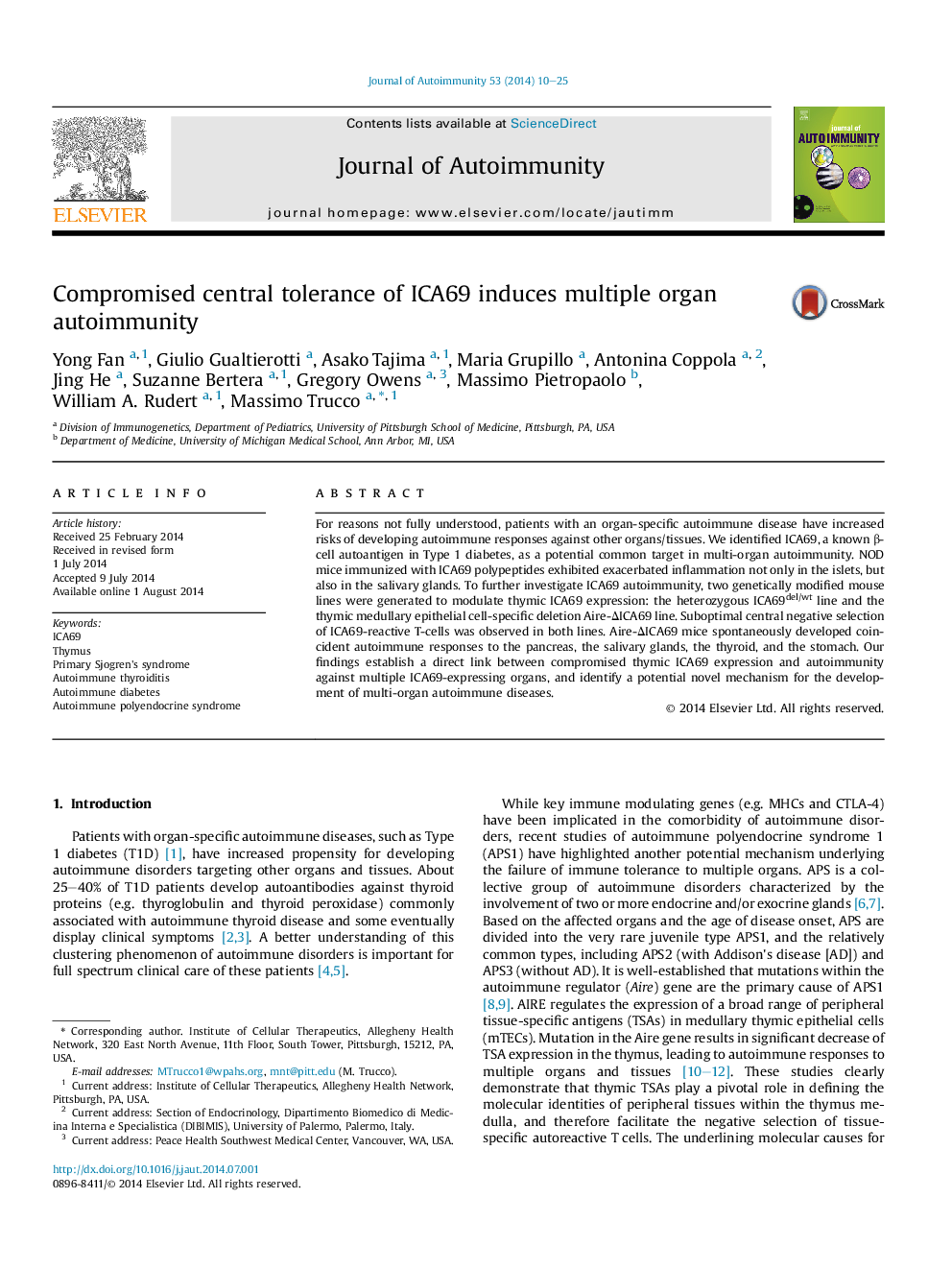| Article ID | Journal | Published Year | Pages | File Type |
|---|---|---|---|---|
| 3367748 | Journal of Autoimmunity | 2014 | 16 Pages |
•Thymus specific deletion of ICA69 induces multiple organ autoimmunity.•A novel mechanism to explain the clustering of different autoimmune diseases.•ICA69 as a potential autoantigen to the development of human APS2 and APS3.
For reasons not fully understood, patients with an organ-specific autoimmune disease have increased risks of developing autoimmune responses against other organs/tissues. We identified ICA69, a known β-cell autoantigen in Type 1 diabetes, as a potential common target in multi-organ autoimmunity. NOD mice immunized with ICA69 polypeptides exhibited exacerbated inflammation not only in the islets, but also in the salivary glands. To further investigate ICA69 autoimmunity, two genetically modified mouse lines were generated to modulate thymic ICA69 expression: the heterozygous ICA69del/wt line and the thymic medullary epithelial cell-specific deletion Aire-ΔICA69 line. Suboptimal central negative selection of ICA69-reactive T-cells was observed in both lines. Aire-ΔICA69 mice spontaneously developed coincident autoimmune responses to the pancreas, the salivary glands, the thyroid, and the stomach. Our findings establish a direct link between compromised thymic ICA69 expression and autoimmunity against multiple ICA69-expressing organs, and identify a potential novel mechanism for the development of multi-organ autoimmune diseases.
